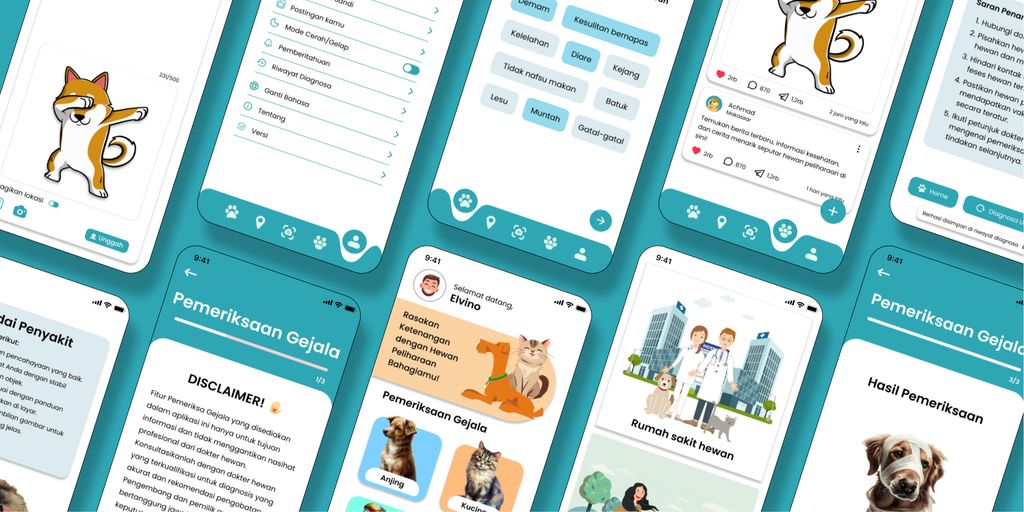OPet - Online Diagnosis for Your Pets Disease

Overview
Developed an Android application for canine disease diagnosis, leveraging an Artificial Neural Network (ANN) with 80+ symptoms and achieving 95% prediction accuracy, accessible via a Flask API with <300ms response time, improving diagnosis speed by 30%.
Background
In a 2022 survey by the Rakuten Insight Center, 67% of 10,422 respondents in Indonesia owned pets, with cats, fish, birds, and dogs being the dominant choices. Rabies is a disease in pets that poses a threat to human health, causing 100-156 deaths per year in Indonesia (source: https://bkd.sultengprov.go.id/).
The uneven distribution of veterinarians contributes to difficulties in treating cat diseases, resulting in 60.9% of cat deaths in Surabaya (Chazar et al., 2019). Indonesia has less than half of the required number of veterinarians, with only 20,000 available instead of the needed 70,000 (Azaliarahma, 2022).
Based on the problem statement, we utilize machine learning classification algorithms and the native Kotlin programming language to develop an application to detect early signs of diseases in pets based on their symptoms. The goal of this application is to assist pet owners in taking care of their pets, addressing the limited availability of veterinarians in certain areas, and the high cost of treatment at animal clinics.
Methodology
1. Machine Learning: Our machine learning efforts involved developing two distinct TensorFlow models. The first, an Artificial Neural Network (ANN), was trained on a one-hot encoded tabular dataset to classify dog diseases based on symptoms and deployed via Flask. The second model, a Convolutional Neural Network (CNN), addressed dog skin disease classification, leveraging data augmentation during preprocessing and deployed efficiently with FastAPI.
2. Mobile Development: For mobile development, we integrated with existing APIs via Retrofit, implementing a ViewModel and LiveData architecture to effectively separate UI and business logic. This approach provides real-time feedback on data loading status, displaying buffers and error messages as needed, and seamlessly integrates Google Maps API for enhanced location-based functionalities.
3. Cloud Computing: Our cloud computing strategy focused on deploying robust APIs on Google Cloud Run to support our machine learning models. We developed Node.js and Flask APIs for symptom-based diagnoses and a FastAPI for image-based diagnostics. User-uploaded images and profile pictures are securely stored in Cloud Storage buckets, linked directly within the application for efficient access.
Categories
Objectives
- Develop a highly accurate pet disease detection system based on symptom analysis, providing reliable and timely insights for pet owners
- Implement robust technical integration across all system components to ensure seamless functionality and optimal application performance upon deployment
Tools & Technologies
Data Source
Canine's disease and symptoms tabular dataset